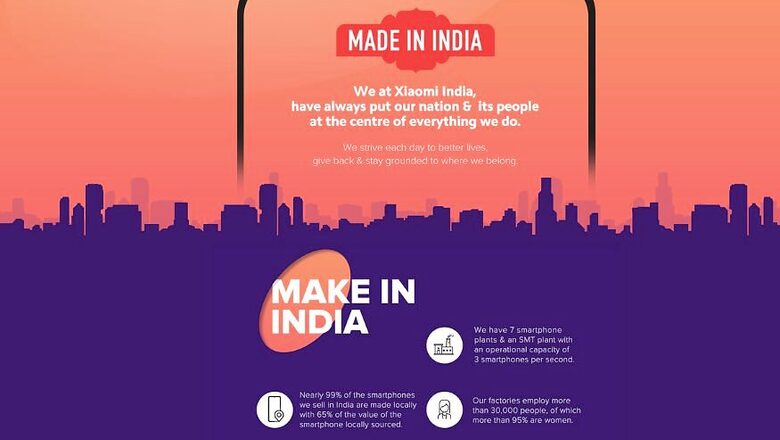Made In India To Play A Key Role in New Draft Policy For Shopping Websites Such as Amazon & Flipkart

views
Shopping websites in India including Amazon.in and Flipkart.com may soon have to ensure that products sold on their platforms clearly highlight the country of origin and how much role India has played in the manufacturing of these products. This comes at a time when tensions with China are at an all-time high, and there is a push towards Made in India products. The government, if this draft ecommerce policy gets finalized, will have the right to access the shopping website source codes and algorithms that dictate product listings, rating and recommendations when a user searches on the shopping website.
The draft policy, which has been seen by Bloomberg, wants to eliminate the possibility of “digitally induced biases”. The report also suggests that the draft clearly refers to ascertaining whether e-commerce businesses have “explainable AI,” amidst the larger use of artificial intelligence. If implemented, this could help improve transparency on shopping websites including Amazon and Flipkart as to how products are listed and recommended to users. The addition of the country of origin tag will also make it easier for users to eliminate products from a particular country from their search results.
“It is in the interest of the Indian consumer and the local ecosystem that there are more service providers” and that “the network effects do not lead to creation of digital monopolies misusing their dominant market position,” says the draft policy, as reported by Bloomberg. It is expected that the government will open the draft ecommerce policy for comments before it is finalized. The draft has been prepared by the Ministry of Commerce’s Department for Promotion of Industry & Internal Trade.
There will also be guidelines on complying with information requests by law enforcement agencies and the government, with shopping websites expected to share required data within 72 hours, reports CNBC-TV18. The report also says that the government is yet to finalize the list of categories for which data localization is mandatory, and for which data mirroring will be permitted. Where websites save user data has long been debated, with calls requiring websites to mandatorily save data on servers in India, often being touted as the safer option. Websites will also have to share the contact details of sellers with buyers and also the complete complaint redressal details.



















Comments
0 comment